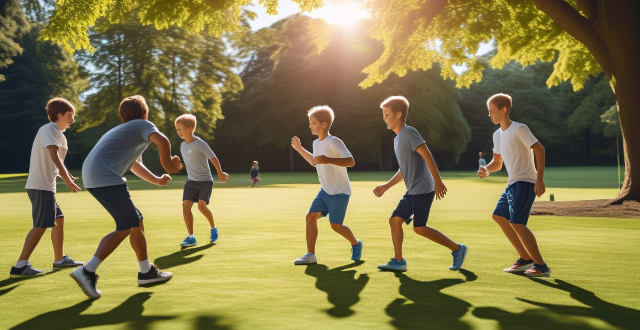Sports play a crucial role in shaping an individual's social skills and personal growth. Engaging in physical activities not only promotes physical health but also enhances mental well-being, develops teamwork and leadership abilities, and fosters communication skills. Participating in sports requires individuals to work together as a team, take on leadership roles, and communicate effectively. These skills are essential for success in both personal and professional life. Additionally, sports provide opportunities for self-discipline, confidence building, and resilience development. By participating in sports, individuals can develop valuable skills that are transferable to all aspects of life.

Impact of Sports on Social Skills and Personal Growth
Introduction
Sports play a crucial role in shaping an individual's social skills and personal growth. Engaging in physical activities not only promotes physical health but also enhances mental well-being, develops teamwork and leadership abilities, and fosters communication skills. In this article, we will explore the various ways in which sports impact an individual's social skills and personal growth.
Social Skills
Teamwork
Participating in sports requires individuals to work together as a team to achieve a common goal. This helps them learn how to cooperate with others, communicate effectively, and compromise when necessary. These skills are essential for success in both personal and professional life.
Leadership
Sports provide opportunities for individuals to take on leadership roles, such as captain or coach. These roles require strong communication skills, decision-making abilities, and the ability to motivate and inspire others. By developing these skills through sports, individuals become better equipped to handle leadership responsibilities in other areas of their lives.
Communication
Effective communication is crucial in sports, whether it's between teammates or coaches and players. Participating in sports helps individuals develop their communication skills by teaching them how to express themselves clearly and listen actively to others. These skills are transferable to all aspects of life, including personal relationships and professional settings.
Personal Growth
Self-discipline
Sports require discipline, dedication, and perseverance. By participating in sports, individuals learn how to set goals, manage their time effectively, and stay committed to achieving their objectives. These qualities are essential for success in all areas of life.
Confidence
Engaging in sports can help boost an individual's self-confidence by providing opportunities for success and accomplishment. As they improve their skills and achieve their goals, they gain a sense of pride and confidence that can carry over into other areas of their lives.
Resilience
Sports often involve facing challenges and setbacks, such as losing a game or dealing with injuries. By learning how to overcome these obstacles, individuals develop resilience and adaptability that can help them cope with adversity in other areas of their lives.
Conclusion
In conclusion, sports have a significant impact on an individual's social skills and personal growth. By participating in sports, individuals can develop valuable skills such as teamwork, leadership, communication, self-discipline, confidence, and resilience. These skills are essential for success in all aspects of life and can help individuals thrive both personally and professionally.